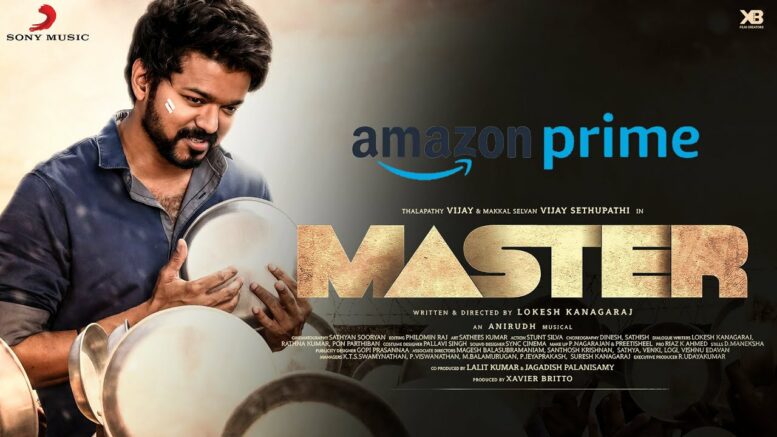Master is out on Amazon Prime, within few weeks of its release, thus giving a chance to people who stayed away from the theatres (and rightly so in wake of the pandemic) to enjoy this major release from the safety of their abodes. Watching it at midnight might not compensate for the FDFS experience in theatre but in times as these, this probably comes close.
Evolution of Hero-centric Films: From Baasha to Master
When Baasha released in 1995, it changed the big hero movie format especially in the Tamil, Telugu and Kannada industries. The larger-than-life hero, mandatory ‘avaru yaaru theriyuma’ flashbacks became a staple of movies to come. Even movies as recent as Theri adopted this. While in the short term this worked like a charm at the box office, like all good things it has come to its end (probably couple of years earlier). The screenplay, dialogues have been becoming predictable to the point of boredom. While Baasha paved the way to a decade and more of smash hits this also led to disappearance of layers from the screenplay.
Vijay’s Collaboration with Director Lokesh Kanagaraj: A Paradigm Shift
At this stage, a huge star like Vijay joining hands with a new age director Lokesh Kanagaraj, is a hope for change. And a refreshing change it is. Unlike many promising directors in the past who sacrificed their mojo at the altar of catering to the star image, Lokesh Kanagaraj has walked a fine line where he has delivered on both counts, almost. This is after all one step in a new and bright direction that will hopefully lead to new permutations and combinations in the mass movie space. Master might not be as successful as Baasha but it sure has left a lesson behind that future director-star combinations can further build on.
Master’s Subtle Subversions: Redefining Mass Movie Tropes
One can notice the subtle differences in the first few minutes when you hear Vijay Sethupathi dub for the boy who plays his younger self. A minor detail but it tells you that something is different. The victory of master is in its subversions: gentle strums of guitar instead of overtly melodramatic background music to the emotional post interval moments, Vijay’s trademark interval dialogue coming from Vijay Sethupathi, the hero’s restraint at key situations that would have normally evoked punch dialogues, the flashback story(ies) that Vijay narrates at a hat’s drop which are all plots of popular movies. Where Master additionally scores high is in the two key areas: making the hero vulnerable and creating a strong villain.
The subtle deviations in Master’s narrative and presentation, including the use of music, dialogue placement, and character dynamics
It goes to show that a complex hero is much more interesting than the plain vanilla personification of good and valour. What it also demonstrates is that a powerful antagonist not only makes the plot interesting, but he also elevates the hero to a much higher level as compared to the “weak” imported villains we are used to watching on screen in most of the big hero movies. It was high time before someone pointed it out with an example on screen. Is it just a coincidence that Bhavani was the name of another iconic villain played by Raghuvaran in Siva, a movie that rewrote the rules of commercial Telugu cinema long back?

Master as a Test of Skills
Master is definitely not Lokesh Kanagaraj’s best work, but definitely the most difficult test of his skills as a writer-director. It is one thing to narrate an ensemble cast story with relatively new faces while keeping one’s sensibilities intact. It is a whole different ball game to bring the inspirations from world cinema and place it in the dominion of a star hero. Yet, Lokesh succeeds for the most part.
The music of the film by Anirudh is complimentary to the mood of the movie: songs, background, and the music that Vijay is seen to listen to. Philomin Raj’s editing experiments with the abrupt cutting and scenes that culminate at a slightly later point. One does see the director’s impact on the music and editing departments. The film does come with its flaws, like the characterization of the heroine but the positives override the negatives.
Master’s Departure from Unidimensional Protagonists
Vijay deserves the due credit for agreeing to this story and sharing the spotlight with Vijay Sethupathi’s Bhavani and couple of other minor but important characters like Arjun Das and the kid in the juvenile detention centre. In Hollywood or closer home in the Malayalam film industry this might not mean much but at the stage that Tamil mainstream cinema is with larger-than-life unidimensional protagonists, Master does seem like a big step. Now as Vijay’s catchphrase goes, ‘I am waiting’ to see what changes its brings forth in the times to come.

Captive of the 24 frames and admirer of the written word. If it is not on the silver screen or on the pages of a paperback, it might as well not exist.


Be the first to comment on "Master (Review) – The positives override the negatives."